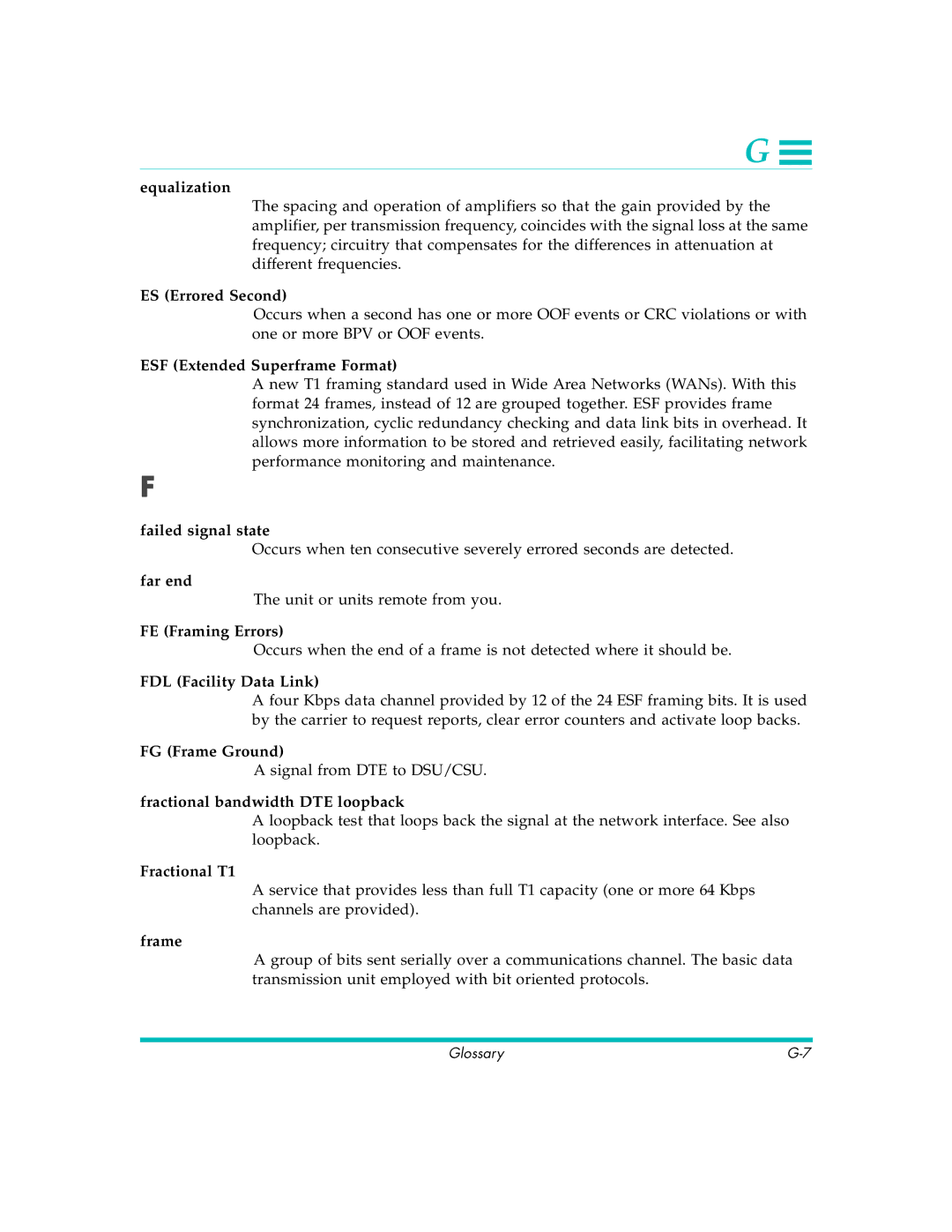
G ![]()
equalization
The spacing and operation of amplifiers so that the gain provided by the amplifier, per transmission frequency, coincides with the signal loss at the same frequency; circuitry that compensates for the differences in attenuation at different frequencies.
ES (Errored Second)
Occurs when a second has one or more OOF events or CRC violations or with one or more BPV or OOF events.
ESF (Extended Superframe Format)
A new T1 framing standard used in Wide Area Networks (WANs). With this format 24 frames, instead of 12 are grouped together. ESF provides frame synchronization, cyclic redundancy checking and data link bits in overhead. It allows more information to be stored and retrieved easily, facilitating network performance monitoring and maintenance.
F
failed signal state
Occurs when ten consecutive severely errored seconds are detected.
far end
The unit or units remote from you.
FE (Framing Errors)
Occurs when the end of a frame is not detected where it should be.
FDL (Facility Data Link)
A four Kbps data channel provided by 12 of the 24 ESF framing bits. It is used by the carrier to request reports, clear error counters and activate loop backs.
FG (Frame Ground)
A signal from DTE to DSU/CSU.
fractional bandwidth DTE loopback
A loopback test that loops back the signal at the network interface. See also loopback.
Fractional T1
A service that provides less than full T1 capacity (one or more 64 Kbps channels are provided).
frame
A group of bits sent serially over a communications channel. The basic data transmission unit employed with bit oriented protocols.
Glossary |
